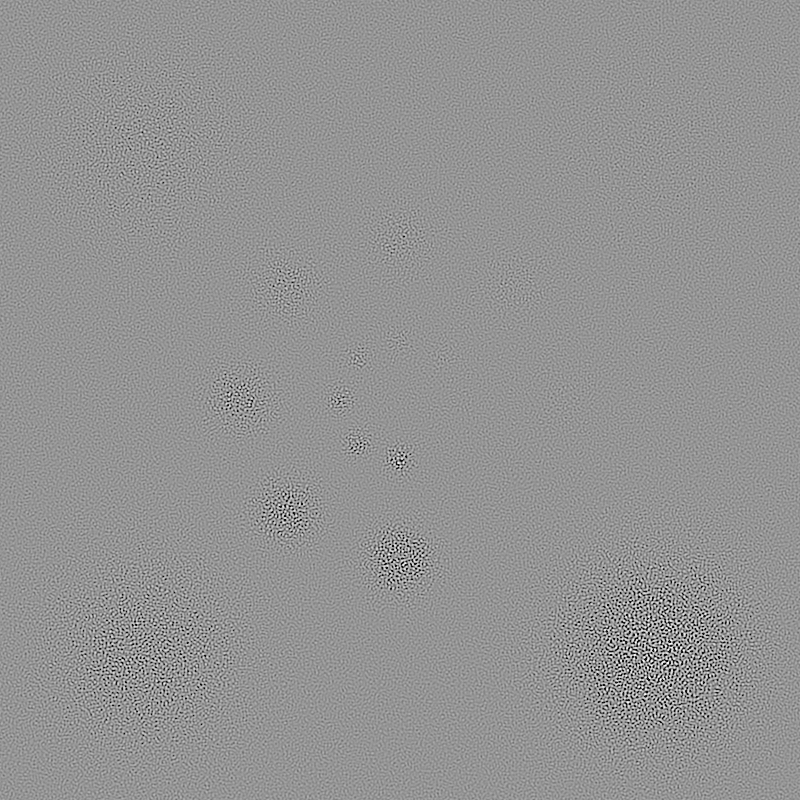
gauss_blobs - test image
Gaussian blobs of difference size and amplitude. There are shown on a masking pattern containing correlated high frequency noise.

blur - test image
Detection of blur.
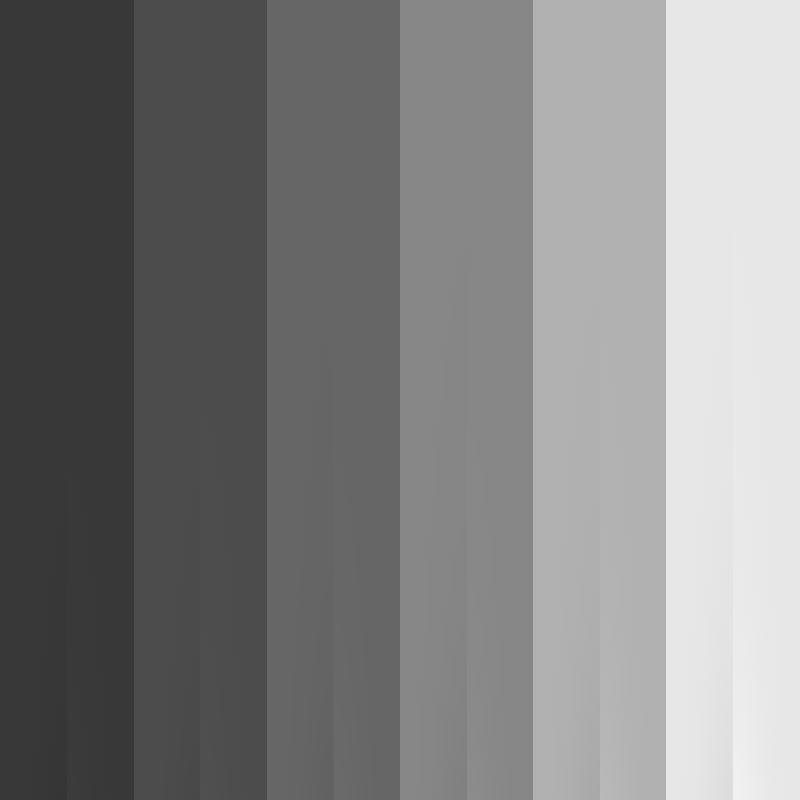
edge_luminance - test image
Edge detection for varying backround luminance (along x-axis).

edge_masking-edge - test image
Edge detection: Cornsweet-illusion edge of varying amplitude (along
y-axis) superimposed on an existing edge (masker) of varing amplitude
(along x-axis). This corresponds to contrast masking but for broadband
stimuli (edges).
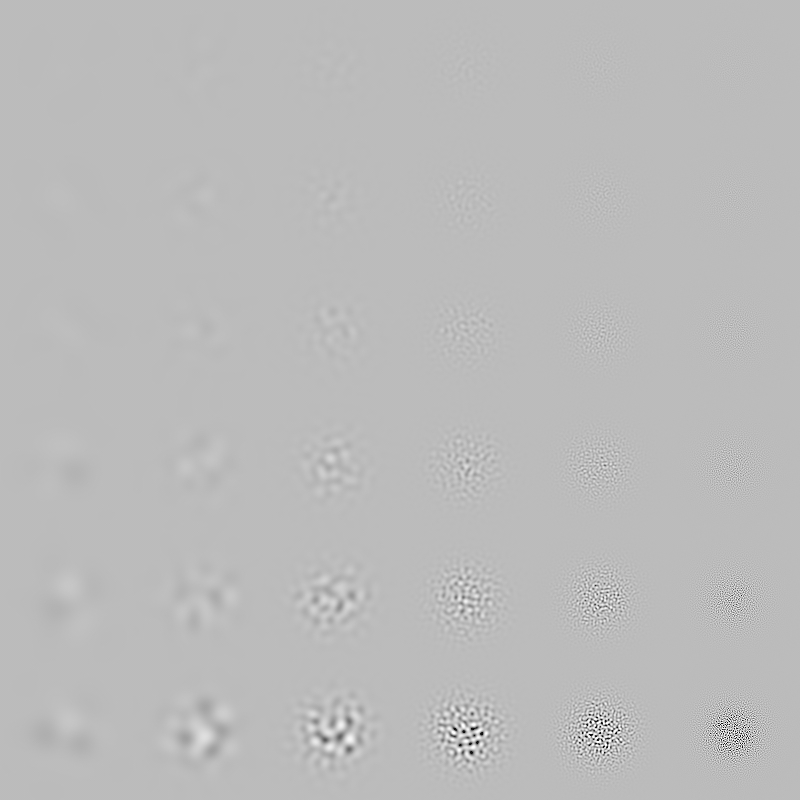
freq - test image
CSF: Frequency variations along x-axis. This test check if the metric can predict near-threshold sensitivity.
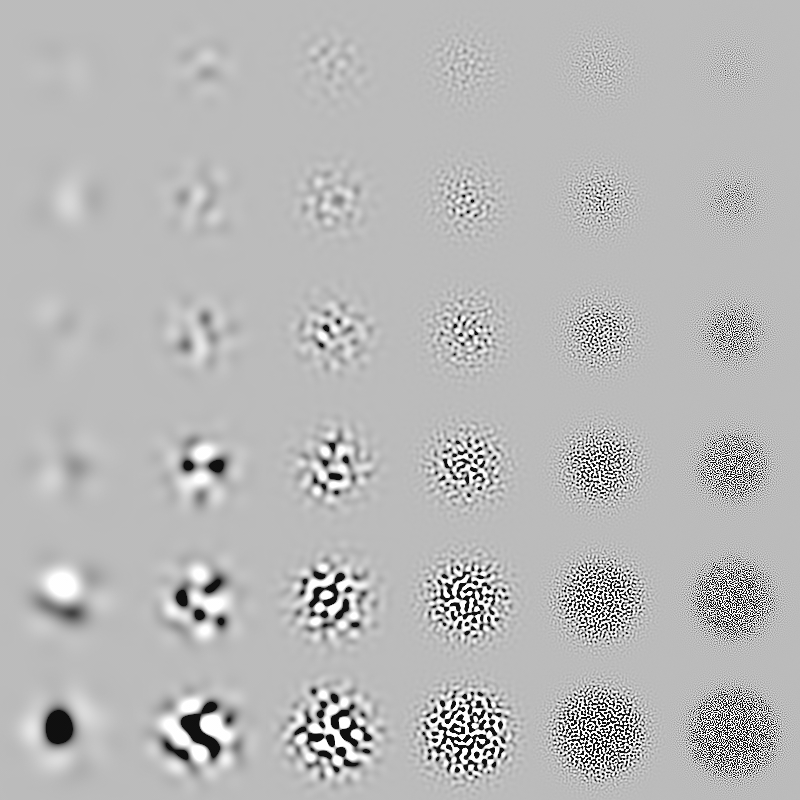
freq-hc - test image
superthreshold-CSF: The frequency variations but for super-threshold contrast. This test shows contrast constancy: the contrast does not change substantially with frequency when is above the detection threshold. Metrics that do not model super-threshold contrast perception over-predict sensitivity loss for high and low frequencies. In particular SSIM and MS-SSIM are not sensitive to low frequencies, and sCIELab attenuates too much high frequencies.
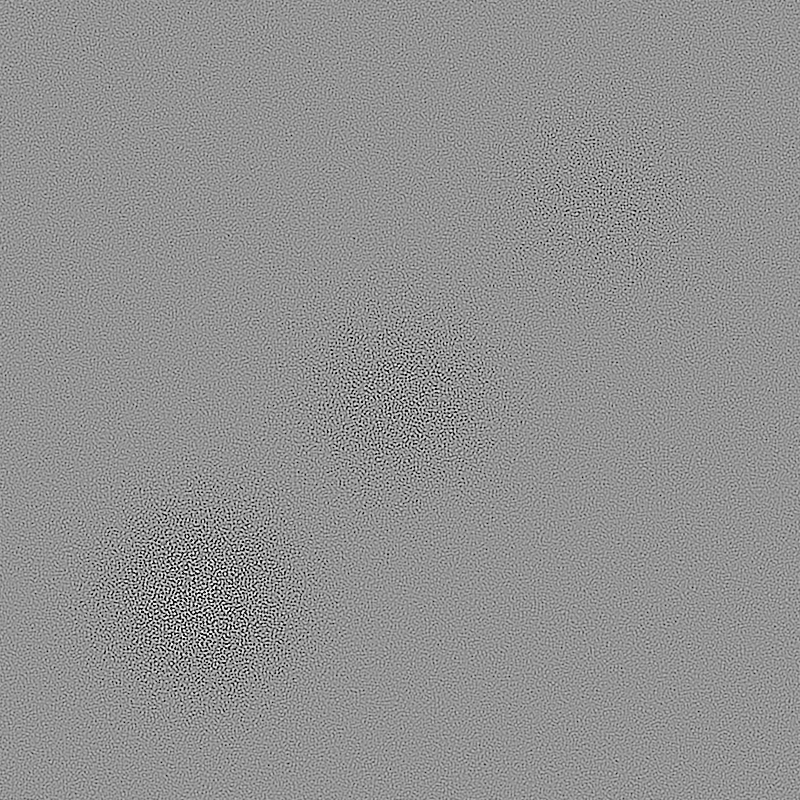
hf_noise_correl_trans - test image
Correlated high frequency noise with translation: Three gaussian blobs of varying contrast are shown in the test image. However, the main purpose of this image is to test metric invariance to translation. The random noise field is identical in both images, but shifted by 2 pixels right in the test image. This poses a problem to most pixel-based metrics.
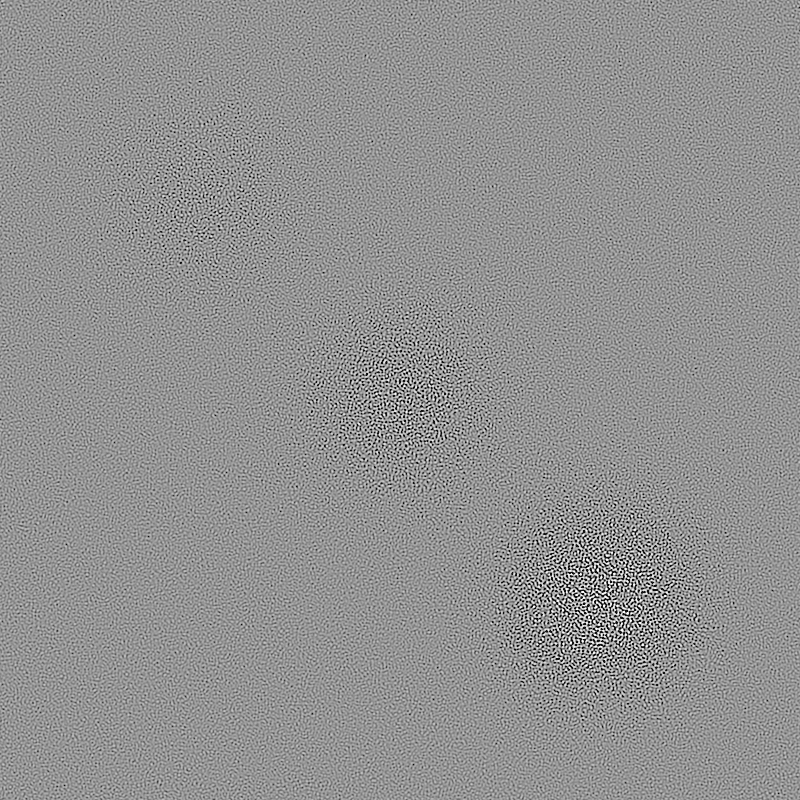
hf_noise_uncorrel_1 - test image
Uncorrelated high frequency noise: Three gaussian blobs of increasing contrast are shown in the test image. However, the random noise fields in both images are uncorrelated. This poses a problem to most pixel-base metrics, which detect differences everywhere, even though only blobs are visible to human observers. Also, blobs are difficult to detect for block-based correlation metrics because of their low spatial frequency.
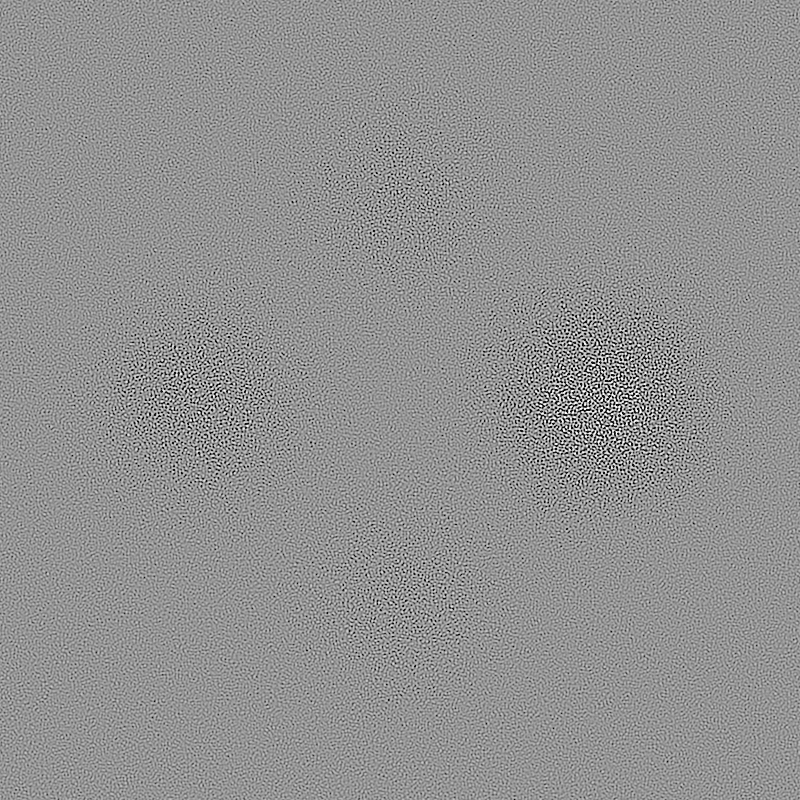
hf_noise_uncorrel_2 - test image
Uncorrelated high frequency noise with masking and distractors: Fours gaussian blobs of varying contrast are shown in the test image. Two of that blobs are also shown in the reference image, however the contrast of one of them is lower. Two blobs in the upper and lower part of the image are of low contrast. They may not be detected by all observers as they can be distracted by much higher contrast blobs in the middle. Also, the random noise fields in both images are uncorrelated. This poses a problem to most pixel-base metrics, which detect differences everywhere, even though only blobs are visible to human observers.
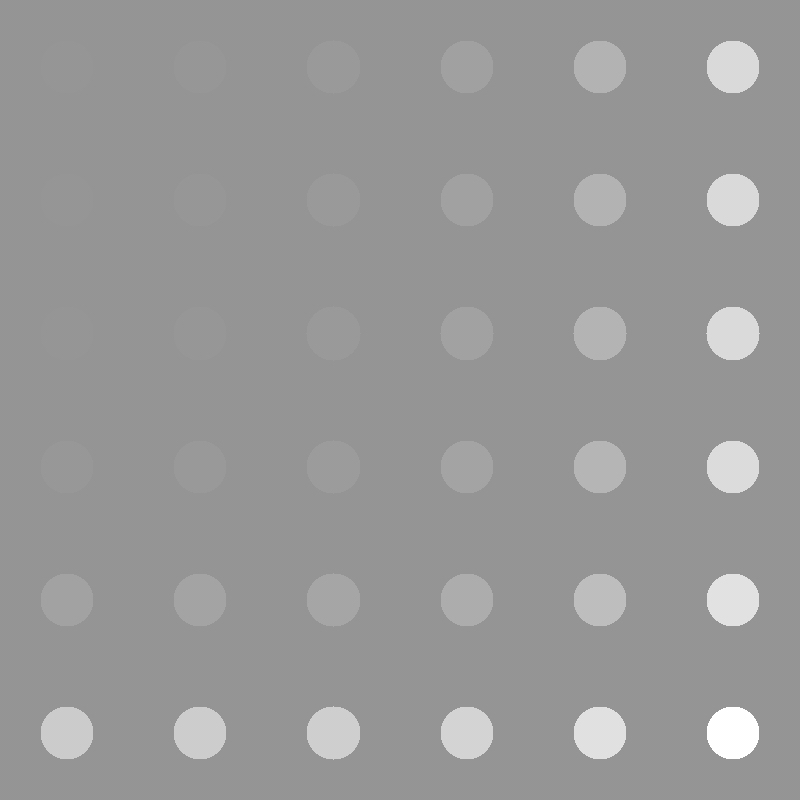
increment - test image
Contrast increments (square patches) superimposed on another increments. HDR-VDP-2 cannot localize well super-threshold distortions.
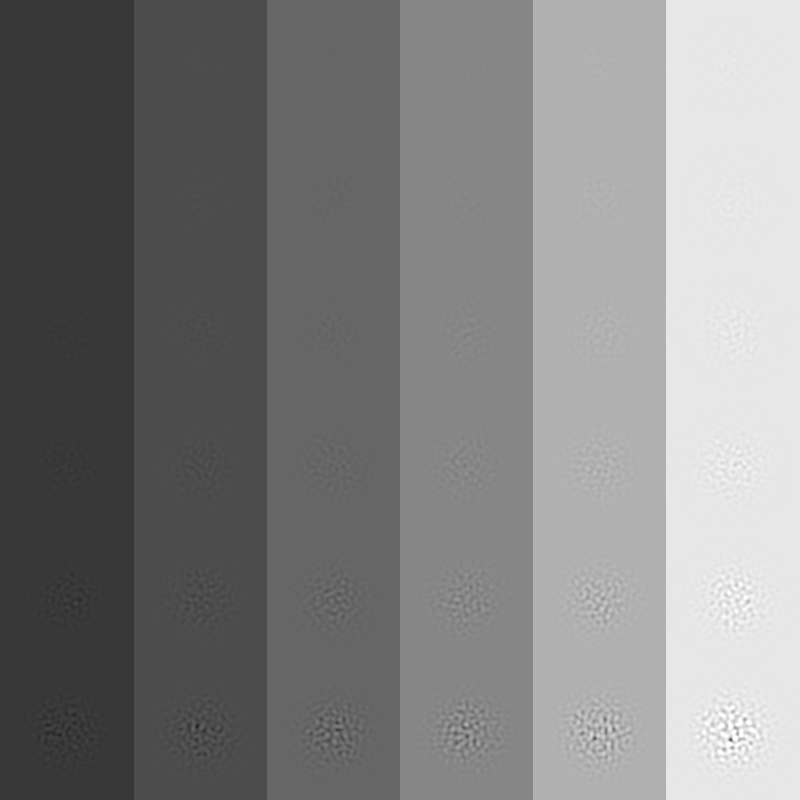
luminance - test image
luminance masking: The luminance varies along x-axis and
contrast of the band-limited noise along y-axis. This test shows
the variation in detection thresholds due to the luminane of the
background. The metrics are expected to show lower sensitivity for
lower luminance levels. Note that even absolute difference (ad) can
predict this property thanks to the sRGB color encoding.
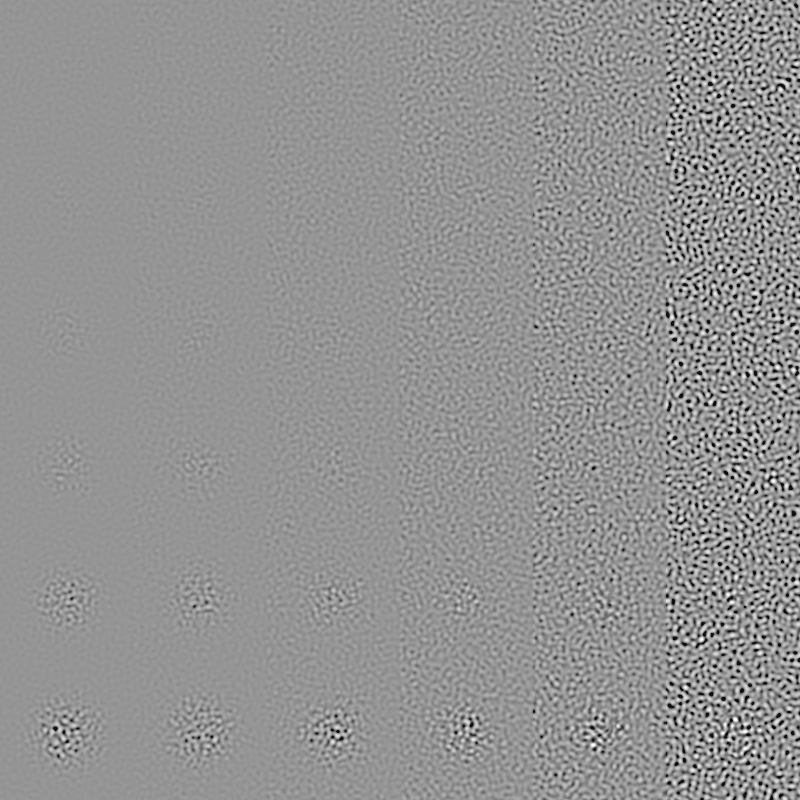
mask-ampl - test image
Contast masking for 4 cpd pattern shown on the 4 cpd background of
varing contrast. The higher is the amplitude of the masker, the more
difficult the distortions are to detect.
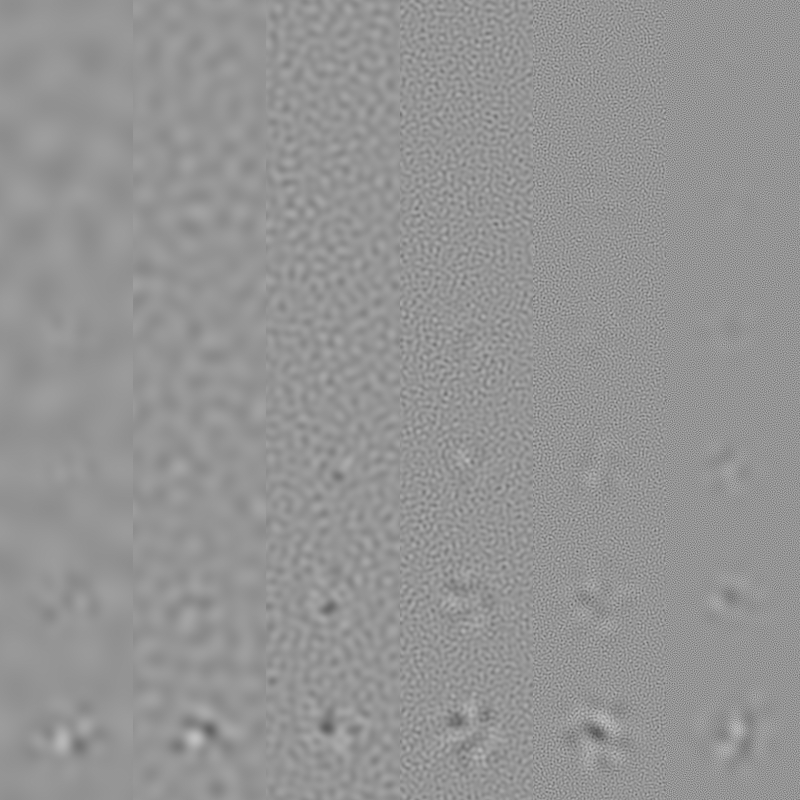
mask-freq-1 - test image
Contast masking for 1 cpd pattern for the varing frequency of the
masker. A metric requires band-limited contrast processing to predict
higher masking for the background of matching frequency (self-masking)
as well as background of similar frequency (cross-channel masking).
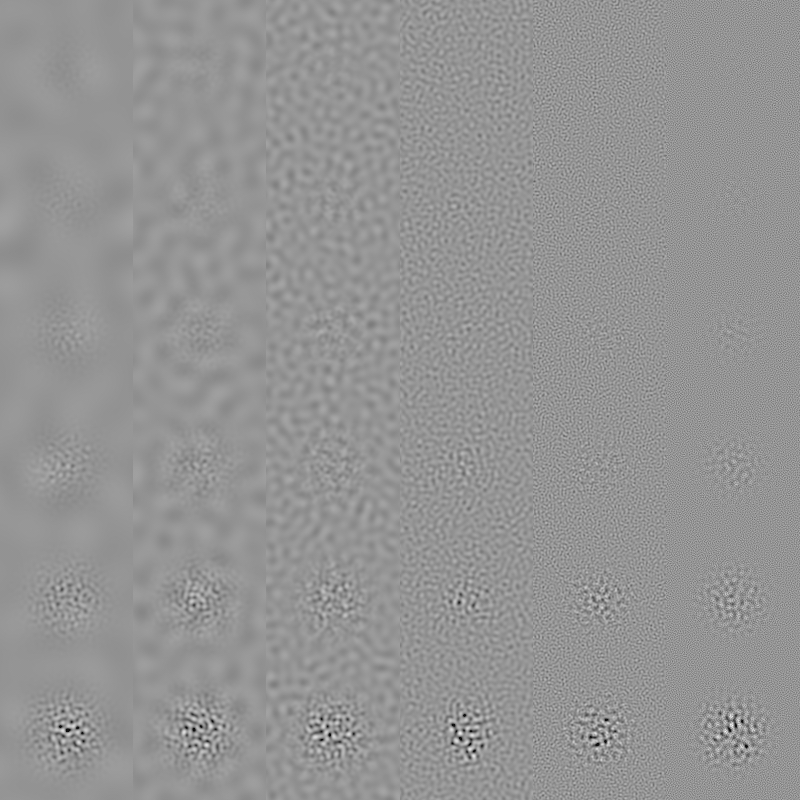
mask-freq-4 - test image
Contast masking for 4 cpd pattern for the varing frequency of the
masker. As above, but for different frequency.